
Lincoln is a cathedral city and district in Lincolnshire, England, of which it is the county town. In the 2021 Census, the Lincoln district had a population of 103,813. The 2021 census gave the urban area of Lincoln, including North Hykeham and Waddington, a recorded population of 127,540.
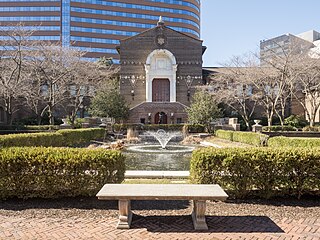
Penn Museum, formerly known as The University of Pennsylvania Museum of Archaeology and Anthropology, is an archaeology and anthropology museum at the University of Pennsylvania. It is located on Penn's campus in the University City neighborhood of Philadelphia, at the intersection of 33rd and South Streets. It also is close enough for Drexel University students to walk or take SEPTA transportation services. Housing over 1.3 million artifacts, the museum features one of the most comprehensive collections of Middle and Near-Eastern art in the world.
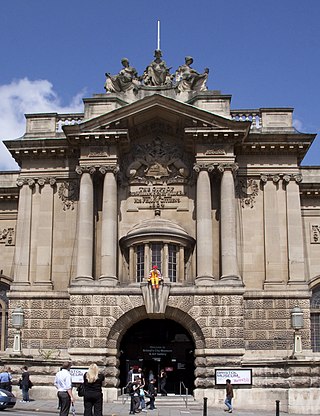
Bristol Museum & Art Gallery is a large museum and art gallery in Bristol, England. The museum is situated in Clifton, about 0.5 miles (0.8 km) from the city centre. As part of Bristol Culture it is run by the Bristol City Council with no entrance fee. It holds designated museum status, granted by the national government to protect outstanding museums. The designated collections include: geology, Eastern art, and Bristol's history, including English delftware. In January 2012 it became one of sixteen Arts Council England Major Partner Museums.
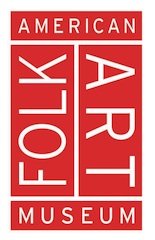
The American Folk Art Museum is an art museum in the Upper West Side of Manhattan in New York City, at 2 Lincoln Square, Columbus Avenue at 66th Street. It is the premier institution devoted to the aesthetic appreciation of folk art and creative expressions of contemporary self-taught artists from the United States and abroad.

Fiskerton is a village and civil parish in the West Lindsey district of Lincolnshire, England. The population of the civil parish at the 2011 census was 1,209. It is situated approximately 6 miles (10 km) east from the city and county town of Lincoln, and on the north side of the River Witham.

Herbert Art Gallery & Museum is a museum, art gallery, records archive, learning centre, media studio and creative arts facility on Jordan Well, Coventry, England.
Sheffield, England, has a large population of amateur, working and professional visual artists and artworks.

York Art Gallery is a public art gallery in York, England, with a collection of paintings from 14th-century to contemporary, prints, watercolours, drawings, and ceramics. It closed for major redevelopment in 2013, reopening in summer of 2015. The building is a Grade II listed building and is managed by York Museums Trust.
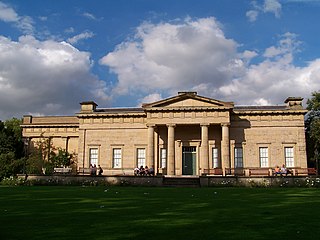
The Yorkshire Museum is a museum in York, England. It was opened in 1830, and has five permanent collections, covering biology, geology, archaeology, numismatics and astronomy.
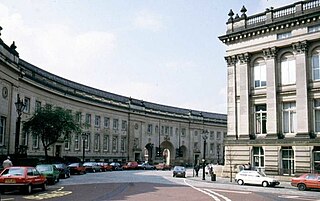
Bolton Museum is a public museum, aquarium and art gallery in the town of Bolton, England, owned by Bolton Metropolitan Borough Council. The museum is housed within the grade II listed Le Mans Crescent near Bolton Town Hall and shares its main entrance with the central library in a purpose-built civic centre.
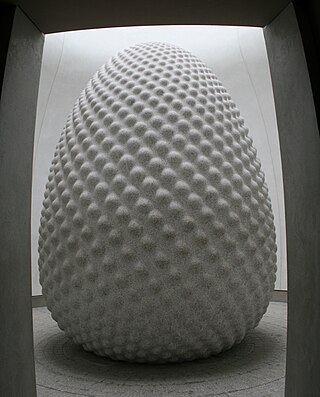
Peter Randall-Page RA is a British artist and sculptor, known for his stone sculpture work, inspired by geometric patterns from nature. In his words "geometry is the theme on which nature plays her infinite variations, fundamental mathematical principle become a kind of pattern book from which nature constructs the most complex and sophisticated structures".

Montrose Museum opened in 1842 in Montrose, Angus, Scotland. The museum came into being when in 1841 the Montrose Natural History and Antiquarian Society started a fund to expand its space; in order to house its curiosities and wonders ranging from geological and ethnographical artefacts to a collection of natural history objects and fine art. It was accredited by the Museums, Libraries and Archives Council in June 2009.

The Higgins Art Gallery & Museum is the principal art gallery and museum in Bedford, Bedfordshire, England, run by Bedford Borough Council and the trustees of the Cecil Higgins Collection.

The Greyfriars, Lincoln was a Franciscan friary in Lincolnshire, England. The surviving building is the remains of the infirmary of the friary, built of dressed stone and brick and dating from c.1230, with mid 19th century additions.
Mary Fitzpayne is an English artist.

James Ward Usher (1845–1921) was a businessman and philanthropist in Lincoln.

Marguerite Horner is a British artist who won the 2018 British Women Artist Award. Her paintings aim to investigate, among other things, notions of transience, intimacy, loss and hope. She uses the external world as a trigger or metaphor for these experiences and through a period of gestation and distillation, makes a series of intuitive decisions that lead the work towards completion.
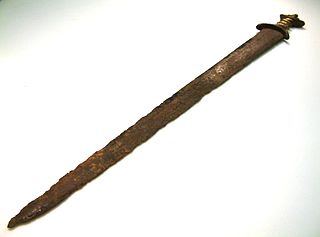
The Gilling sword is an Anglo-Saxon sword, dating from the late 9th to early 10th centuries AD, found by a schoolboy in a river in 1976 and subsequently acquired by the Yorkshire Museum.

The Fiskerton log boat is an Iron Age log boat, found during excavations in 2001 on the banks of the River Witham near Fiskerton, Lincolnshire.

The Usher Gallery is an art museum in Lincoln, England. The gallery displays a collection of artworks by painters such as J. M. W. Turner and L. S. Lowry. Established in 1927, it is run as part of the Collection.





















